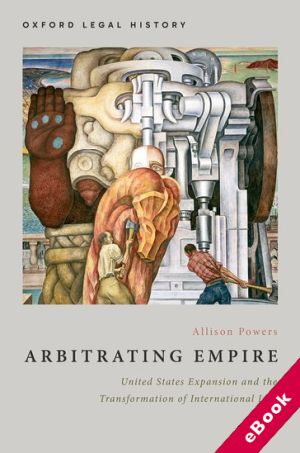
The device(s) you use to access the eBook content must be authorized with an Adobe ID before you download the product otherwise it will fail to register correctly.
For further information see https://www.wildy.com/ebook-formats
Once the order is confirmed an automated e-mail will be sent to you to allow you to download the eBook.
All eBooks are supplied firm sale and cannot be returned. If you believe there is a fault with your eBook then contact us on ebooks@wildy.com and we will help in resolving the issue. This does not affect your statutory rights.
Arbitrating Empire offers a new history of the emergence of the United States as a global power—one shaped as much by attempts to insulate the US justice system from international legal accountability as it was by efforts to project influence across the globe. Drawing on extensive archival research in the United States, Mexico, Panama, and the United Kingdom, the book traces how thousands of dispossessed residents of US-annexed territories petitioned international Claims Commissions between the 1870s and the 1930s to challenge endemic state violence under US governance.
Through attention to the consequences of their unexpected claims, Allison Powers demonstrates how colonial subjects, refugees from slavery, and migrant workers transformed a series of tribunals designed to establish the legality of United States imperial interventions into sites through which to challenge the legitimacy of the US justice system itself. One of the first social histories of international law, the book argues that contests over meanings of sovereignty and state responsibility that would reshape the mid-twentieth century international order were waged not only at diplomatic conferences, but also in Arizona copper mines, Texas cotton fields, Samoan port cities, Cuban sugar plantations, and the locks and stops of the Panama Canal.
Arbitrating Empire uncovers how ordinary people used international law to challenge the legitimacy of the US Empire and demonstrates why State Department attempts to erase their claims transformed international law in ways that continue to shield the US government from scrutiny to this day.